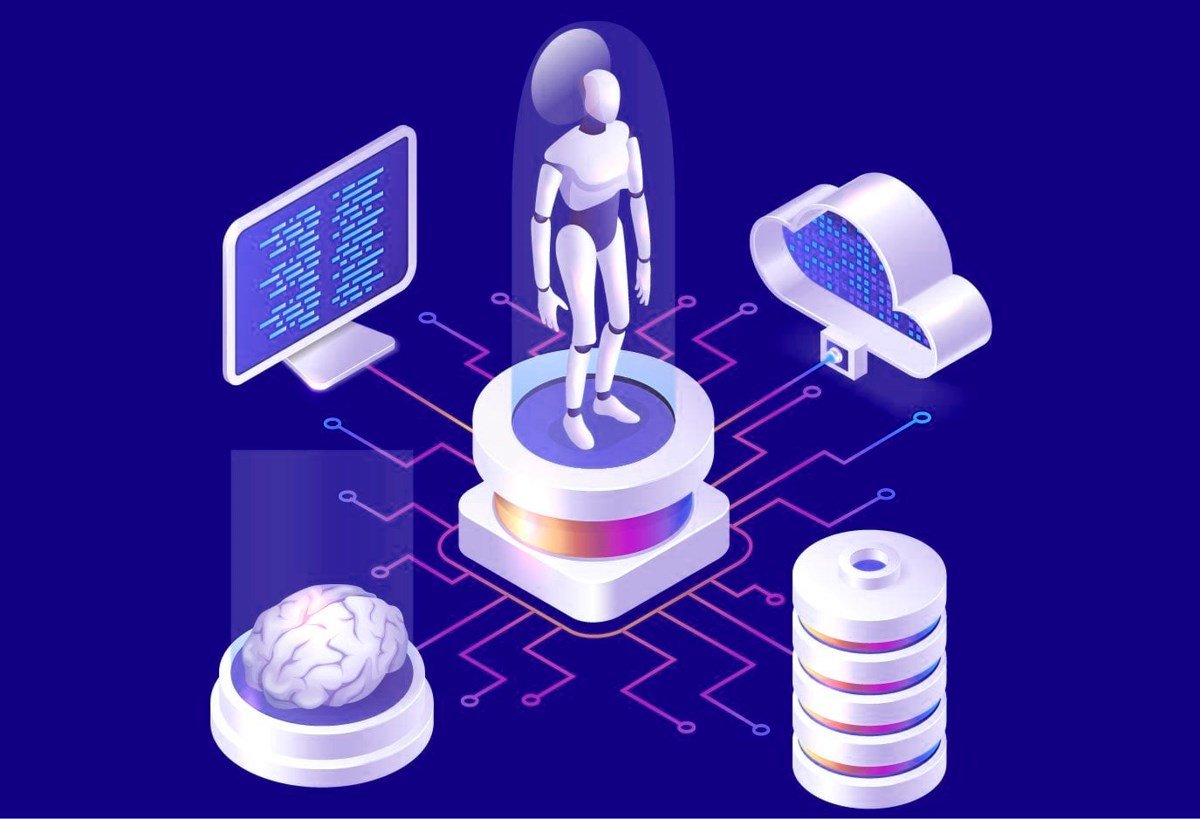Artificial Intelligence (AI) has been one of the most rapidly advancing technologies in recent years. It has permeated various aspects of our lives, transforming industries, revolutionizing business processes, and even shaping our everyday experiences. In this article, we will delve into the world of artificial intelligence in 2023, exploring its applications, advancements, ethical considerations, impact on work and everyday life, as well as the challenges and limitations it faces.
Artificial Intelligence refers to the development of computer systems that can perform tasks that typically require human intelligence. These tasks include understanding natural language, recognizing images, making decisions, and learning from experience. AI has a rich history, dating back to the 1950s, and has since evolved to become a powerful tool with a wide range of applications.
Read more: The Impact of Artificial Intelligence on Jobs and the Future of Work in 2023
Applications of AI in Various Industries
Table of Contents

AI has found applications in numerous industries, significantly transforming the way businesses operate. In healthcare, AI is being utilized for disease diagnosis, personalized medicine, and drug discovery. In finance and banking, AI algorithms are used for fraud detection, risk assessment, and algorithmic trading. Transportation and logistics benefit from AI-driven route optimization, autonomous vehicles, and supply chain management. Retail and e-commerce companies leverage AI for demand forecasting, recommendation systems, and chatbot-based customer support.
Advancements in AI Technology
The field of AI has witnessed remarkable advancements in recent years, fueled by breakthroughs in machine learning and deep learning. Machine learning algorithms allow computers to learn patterns from data and make predictions or decisions based on those patterns. Deep learning, a subfield of machine learning, utilizes artificial neural networks to simulate human brain function and achieve even more sophisticated results. Natural Language Processing (NLP) enables computers to understand and generate human language, facilitating applications like language translation, sentiment analysis, and chatbots. Computer Vision enables machines to perceive and interpret visual information, enabling applications such as facial recognition, object detection, and autonomous vehicles.
Ethical Considerations in AI
As AI becomes more pervasive, ethical considerations surrounding its use are gaining prominence. One major concern is the potential bias embedded in AI algorithms. If the training data used to develop AI systems is biased, the resulting algorithms may exhibit discriminatory behavior. Privacy and data security are also significant concerns. AI systems often rely on vast amounts of personal data, raising questions about data protection and consent. Furthermore, the impact of AI on jobs and society as a whole is a topic of debate, with fears of job displacement and unequal distribution of benefits.
AI and the Future of Work
Contrary to the common belief that AI will replace humans in the workforce, the future of work is likely to involve collaboration between humans and AI. AI-driven automation has the potential to eliminate repetitive and mundane tasks, freeing up human workers to focus on more complex and creative endeavors. Organizations will need to adapt to this new landscape by reskilling and upskilling their workforce to work alongside AI systems. The development of new job roles that leverage AI technology is also expected.
AI and Everyday Life

AI has already become deeply integrated into our everyday lives, enhancing convenience and personalization. Virtual assistants like Siri, Alexa, and Google Assistant are becoming ubiquitous, providing us with voice-activated control over our devices and access to information. Personalized recommendations, powered by AI algorithms, are present in our online shopping experiences and streaming platforms, tailoring content to our preferences. AI is also making its way into entertainment and gaming, enabling immersive experiences and realistic simulations.
Challenges and Limitations of AI
While AI has made significant strides, it still faces challenges and limitations. One of the key challenges is the explainability and transparency of AI systems. Deep learning models, for example, can be highly complex and difficult to interpret, making it challenging to understand the decision-making process. Additionally, the quality and availability of data are crucial for the success of AI systems. Biased or incomplete data can lead to biased or erroneous outcomes. Another concern is the potential for AI system failures and risks, such as self-driving car accidents or AI chatbots spreading misinformation.
The Role of Governments and Policies
Given the potential impact of AI on society, governments worldwide are grappling with how to regulate and govern this technology. Regulations and oversight are necessary to ensure the responsible development and use of AI systems. International cooperation is also crucial to establish common ethical standards and address the global challenges posed by AI. Governments are investing in AI research and innovation, supporting startups, and fostering collaboration between academia and industry.
Conclusion
Artificial Intelligence continues to push the boundaries of what is possible, transforming industries and reshaping our lives. In 2023, AI is being applied across diverse sectors, from healthcare to finance, transportation to retail. However, as AI progresses, it is essential to address ethical considerations, mitigate bias, and ensure privacy and data security. The future of work will involve collaboration between humans and AI, with the need for upskilling and reskilling. As AI becomes intertwined with everyday life, it offers convenience and personalization but also raises questions about transparency and system failures. Governments and policies play a crucial role in shaping the responsible and beneficial use of AI technology.
FAQ Section
What is the difference between AI and machine learning?
Artificial Intelligence is a broader concept that encompasses the development of computer systems that can perform tasks requiring human intelligence. Machine learning is a subfield of AI that focuses on algorithms and statistical models that enable computers to learn from data and make predictions or decisions without being explicitly programmed.
Can AI replace human intelligence completely?
No, AI cannot replace human intelligence entirely. While AI can perform specific tasks with remarkable efficiency, it lacks the cognitive abilities and adaptability of the human mind. The future of AI lies in collaboration with humans, augmenting our capabilities and improving efficiency.
How can AI improve healthcare services?
AI has the potential to revolutionize healthcare by aiding in disease diagnosis, personalized medicine, and drug discovery. AI algorithms can analyze medical images, interpret genetic data, and assist in treatment planning, leading to faster and more accurate diagnoses and tailored treatment plans.
What are the major concerns regarding AI ethics?
Some major concerns in AI ethics include algorithmic bias, privacy and data security, and the potential impact on jobs and society. Bias in AI algorithms can lead to discriminatory outcomes, while the vast amount of personal data used in AI systems raises privacy concerns. The fear of job displacement and unequal distribution of benefits also looms large.
Will AI lead to job losses in the future?
While AI-driven automation may eliminate certain jobs, it is expected to create new job roles and opportunities as well. The focus will shift from routine and repetitive tasks to more complex and creative work. However, reskilling and upskilling will be essential to adapt to the changing job market.




